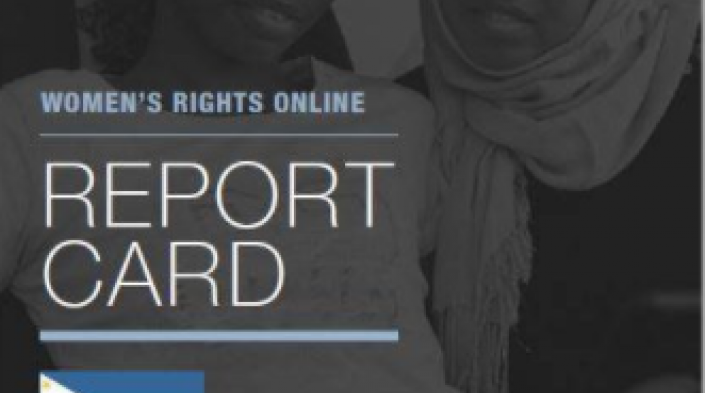
Publisher: APCNews
Published onPage last updated on
How do we measure women’s rights online? Even if women have access to the internet, what kind of environment are they able to access online? Are digital spaces safe for women?
These are some of the questions that APC member Foundation for Media Alternatives (FMA) addressed in its digital gender report card on the Philippines’ progress in closing the digital gender gap. The scorecard, developed by the World Wide Web Foundation along with partner organisations from 10 countries and with support from UN Women and Swedish International Development Cooperation Agency (Sida), aims to help identify and eventually address gaps in data about women and information and communications technologies (ICTs) in the Philippines.
The overall country score is based on 14 indicators that were grouped into five main thematic categories, namely: internet access and women’s empowerment, relevant content and services, online safety, affordability, and digital skills and education. Scores for each indicator were given based on reliable empirical sources such as reports, surveys and existing legislation from each of the countries.
In the words of FMA Executive Director Liza García, the report also aims “to hold the Philippine government accountable in meeting the Sustainable Development Goals' gender and ICT targets.”
Overall, the results of the scorecard for the Philippines, launched on 6 April in Quezon City, show that there is an existing digital divide in the country and still much to be addressed in terms of policies. FMA, in consultation with other national stakeholders, has identified concrete steps that the Philippine government can take to address the challenges identified, including integrating gender into the Philippines’ national ICT plan; improving internet affordability and speed; implementing inclusive digital literacy programmes; conducting gender audits of government agency websites; and ending online gender-based violence.
“The scorecard is just the starting point for broader regional and global consultation,” García highlighted.
Aside from the Philippines, gender audits were also conducted in nine other countries: Colombia, Egypt, Ghana, India, Indonesia, Kenya, Mozambique, Nigeria and Uganda. The World Wide Web Foundation and its partners plan to add more countries for the next round of gender audits.


